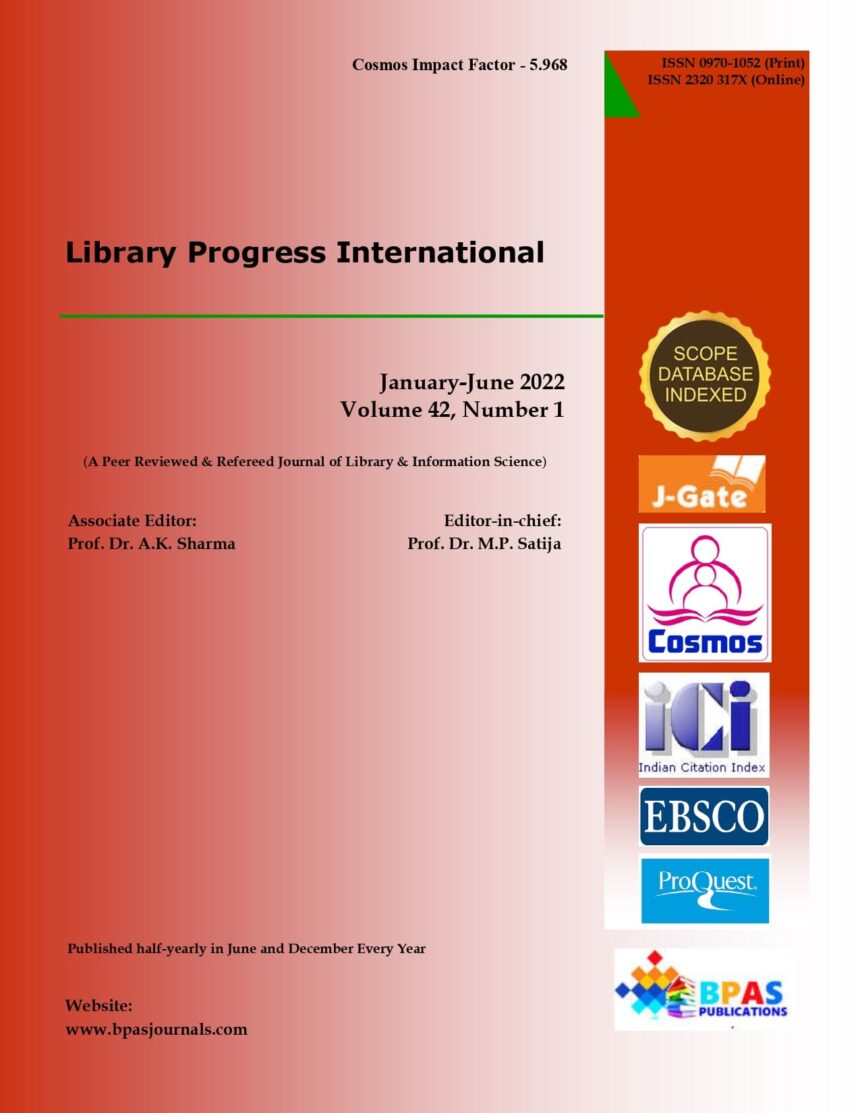Knowledge Management Practice among Academic Staff of Federal College of Agricultural Produce Technology, Kano
DOI:
https://doi.org/10.48165/Keywords:
Knowledge Management, Awareness, Perception, Practice and Academic StaffAbstract
Knowledge Management (KM) is perceived to be a key concern to all organizations. It is also believed to be the act of creating, acquiring, packaging applying and re use of knowledge. The study aimed at exploring the awareness and benefits of KM as well as its integration into the academic practice of the college by the academic staff. The study was conducted using explanatory sequential design with questionnaire and interview as instruments for the data collection. The study revealed that not all the academic staffs in the college were aware of KM but those that were aware of it perceived it as something that is necessary for general development of the institution. Majority of the respondents were aware of KM and do practice it at varying degrees. It was also revealed that the respondents benefitted from KM because it helps the academic staff to acquire a lot of information and knowledge through the institutions’ activities like seminars, workshops and team work. It was concluded that the organization appears to be paying no attention to KM. The respondents therefore need more awareness and understanding of the subject matter.
Downloads
References
Agarwal N, K and Marouf L, N (2014) Initiating knowledge management in colleges and universities: A template. International journal of knowledge content Development and Technology (4): 2 67-96.
Agarwal, N.K., & Islam, M.A. (2014). Knowledge management implementation in a library: mapping tools and technologies to phases of the KM cycle. VINE, 44(3): 322-344, 3. Ali, N & Khan, D. (2015). Perception of knowledge management and Library and Information Science: A Study of Central Universities in North India. Library Philosophy and Practice (ejournal). (5)1: 68–75.
Cresswell, J.W. (2012). Educational Research: planning, conducting and evaluating qualitative, quantitative research, (4thed). Pearson: Boston.
Kalkan, V.D. (2017). Understanding knowledge management in academic units: A framework for theory and research. Earoupean Journal of Business and Social Science. 5(12): 1-14. 6. Krishnamurphy, M.V. (2015). Empirical Study on Perception of Knowledge Management among Librarians. International Journal of Library Science and Research (5)2: 7-12. 7. Mastan M, Jai G&Arul J.(2016).An analysis of knowledge management in educational institution. International Journal of Applied Sciences and Management (2)1: 211-218. 8. Raja, M.W, Ahmad, M.Z & Sinha, A.K. (2009). Knowledge management and academic Libraries in IT Era: Problems and Positions. ICAL, 701-704.
Roza, M, Nouri, S.D, Zandi, B, Lavasani, M. G. (2017).Academic culture and its role in knowledge management in higher education system. International Journal of Environment and Science Education. (12)5: 1427 – 1434.
Sangeeta, N. D. (2015). Importance of knowledge management in the higher educational institutes. Turkish Online Journal of Distance Education, (16)11: 162-183.

